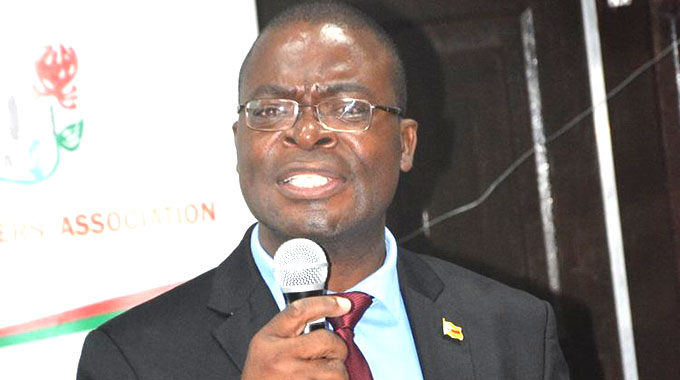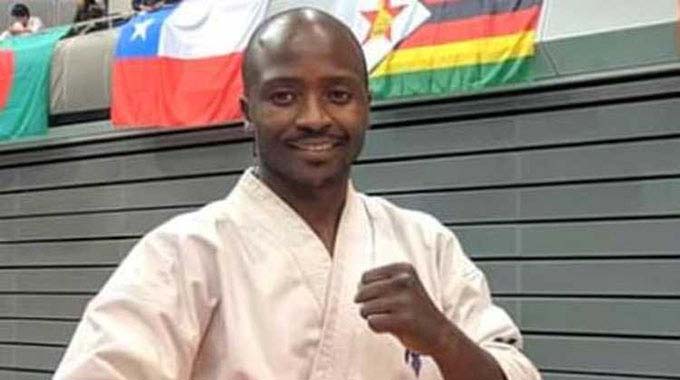UZ hosts teachers forum

Marytise Vambayi-Herald Reporter
All institutions and agencies of Government at every level must endeavour to facilitate rapid and equitable development, Minister of Higher and Tertiary Education, Innovation, Science and Technology Development Amon Murwira told the vice chancellor’s teacher education curriculum transformation conference yesterday.
All institutions had to take measures to promote private initiative and self-reliance, to foster agricultural, commercial, industrial, technological and scientific development and to foster the development of industrial and commercial enterprises in order to empower Zimbabweans.
This was in line with President Mnangagwa’s national vision of becoming an upper middle-income economy or better by 2030 in compliance with the requirements in the Constitution for national development.
“Thus our national strategic intent is rapid and equitable development through vision 2030. Modernisation and industrialisation is our end in mind,” said the Minister.
His Ministry was working to develop the capability that will lead to the realisation of the national strategic intent.
“This capability is produced by a well configured system of higher and tertiary education, innovation, science and technology that is responsive to the needs of the people of Zimbabwe. Our people want food, water, shelter, sleep and innovation.”
“Education must therefore, provide these needs, that are primarily linked to the improvement of the quality of life in a nation. Human needs inform education curricula and education produces industry to fulfil human needs. Higher and tertiary education must develop industrial and commercial enterprises that satisfy the needs of our people”, he said.
Prof Murwira said the Ministry strategies were now focused on education as a tool for emancipation and national advancement.
“In this regard, the Government of Zimbabwe, directed the Ministry of Higher and Tertiary Education, Innovation, Science and Technology Development reconfigure Zimbabwe’s education from the 3.0 model of education and training that was centred mainly on teaching, research; and community-service, to include two more missions of innovation and industrialisation, what we term Education 5.0.”
“This Education 5.0 is underpinned by the heritage-based philosophy which emphasises that development shall be rooted in our environment endowments,” he said.
Prof Murwira said nothing stops a college from having a school or a factory manufacturing teaching aids. The school and the factory would form the industrial park of the college.
“During and after their training in teachers colleges, teachers should be able to industrialise, to create and produce goods and services.
They should be able to generate employment for themselves and for others. We are ready to support you along this journey of industrialising the education sector.
“The demands of Education 5.0 now highlight the urgent need for in-service training and staff development for teachers and teacher educators, so that they continuously upgrade their knowledge and skills and competences as professionals and academics”, he said.
Prof Murwira said the conference brought together teachers colleges in his Ministry, schools in the Ministry of Primary and Secondary Education, and the universities.
“It is critically-important that the two ministries of education and the universities continue to work in collaboration, complementing each other to produce the desired teacher who facilitates the attainment of Zimbabwe’s Vision 2030, the transformation and development of Zimbabwe into a prosperous and empowered upper middle-income society by 2030,” he said.
Vice Chancellor of the University of Zimbabwe Paul Mapfumo said one of the major problems besetting the country today was the problem of unemployment of youths yet nearly every school and college graduate, on completing their studies, expected to be employed.
“The 21st century calls for a paradigm shift, a shift from education for being employed to education for the creation of employment. This is where Education 5.0 comes in.
“Education 5.0 is about preparing the young minds to be self-sufficient in producing goods and services as society demands. Education 5.0 should produce thinking products who can solve problems of development in their communities,” he said.
Prof Mapfumo said in all this process, the school should be the agent of change that society needs. “The school teacher should be an agent of change and should be at the centre of development programmes in the community in which they operate,” he said.









Comments